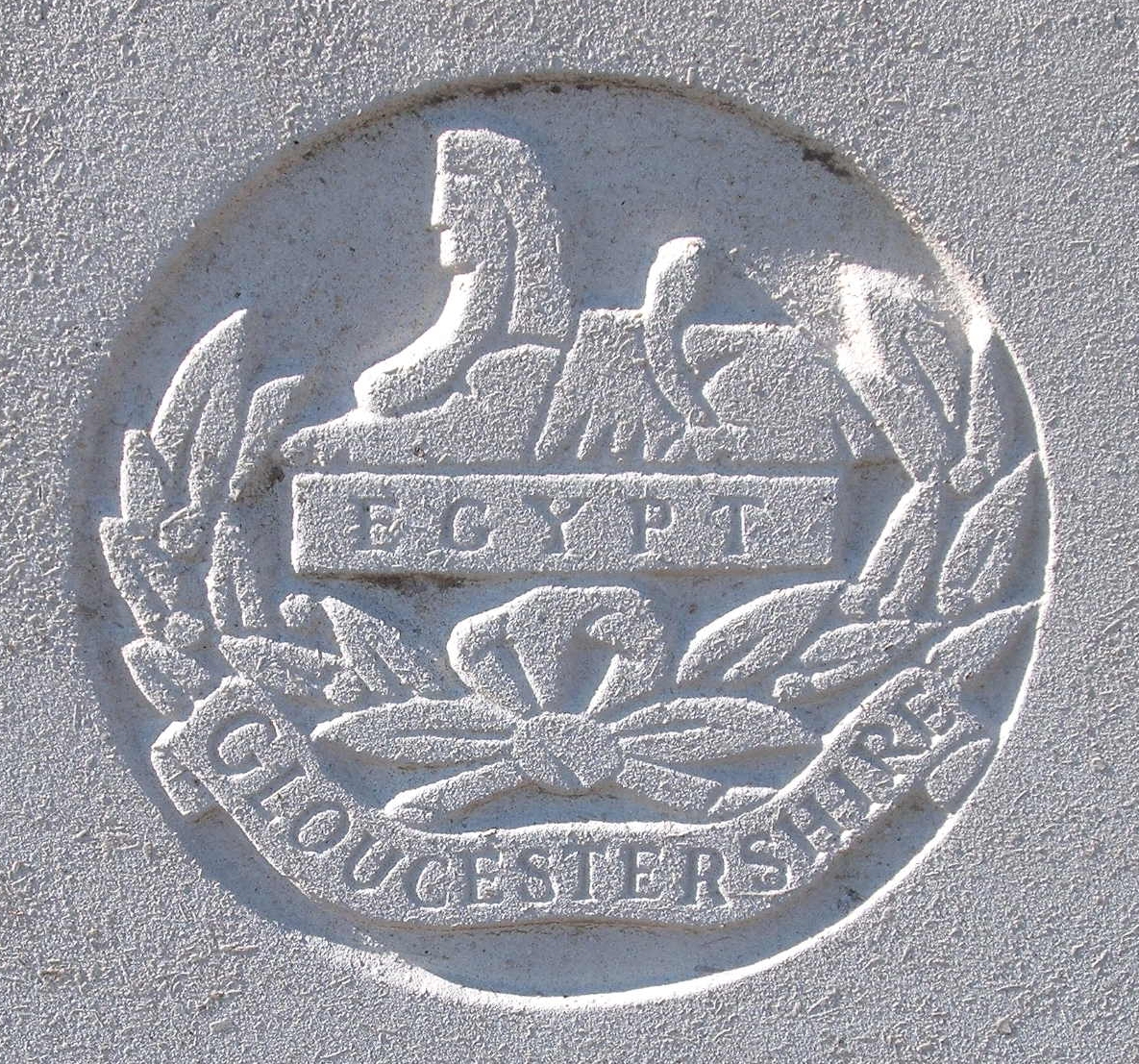Early years
Charles Chidgey was born in Newtown, Malvern Link on 21st July 1894; one of seven children of Albert Henry Chidgey, a journeyman carpenter and his wife Mary Ann. He was a twin. Both he and his twin brother Maurice were christened privately at home by Rev Archibald Day, the Vicar of St Matthias, Malvern Link, indicating a difficult birth and fears for the babies’ health.
Happily both Charles and Maurice survived infancy and in the 1911 Census were to be found at the family home, 2 Laurel Bank, Hospital Bank, Newtown. The Census records that Charles was following his father in the building trade, being apprenticed to a brick layer. (As indeed was Maurice as a joiner’s apprentice).
First World War
Charles joined the army, a Kitchener’s Army volunteer, shortly after the outbreak of the First World War. He enlisted in the Gloucestershire Regiment at Cheltenham – perhaps where he was working at the time.
A member of the 7th Battalion, part of the 13th (Western) Division, Charles sailed from Avonmouth Docks on 19th June 1915, bound for the Dardenelles. The troopships went via Alexandria to Mudros, and on 11 July the battalion landed on Y Beach at Cape Helles, Gallipoli. The division was to relieve Regular Army units of the 29th Division holding the left of the line.
Chanuk Bair
Charles took part in the Battle of Chanuk Bair on in August 1915. Initially in support of New Zealand troops, the 7th Gloucesters made an attack on 8th August 1915. They found the Chunuk Bair hilltop virtually undefended after a naval bombardment, but were subjected to enfilade fire from the neighbouring Hill Q, which was still resisting capture, and the leading platoons of 7th Gloucesters were ‘practically wiped out’. Those who reached the top glimpsed the Dardanelles narrows – the goal of the campaign – in the distance, but Chunuk Bair was hard to defend.
The commander-in-chief, Sir Ian Hamilton, noted that the 7th Gloucesters had been unable to dig trenches deeper than 6 inches (15 cm), but had fought on until nightfall in small parties under the leadership of junior non-commissioned officers (NCOs) and privates. After being relieved on the hilltop, it took the survivors three days to get back to the battalion’s new position at Overton Gully. (Chunuk Bair was lost next day to a massive counter-attack led by the future Turkish president Mustafa Kemal Pasha.)
The end of the Gallipoli Campaign
At the end of August 1915, the 7th Gloucestershire Regiment were moved from Anzac to the Suvla Sector, but the campaign was by now doomed to failure. The rearguard of the battalion left Ottoman soil in mid-December, but by this time Charles Chidgey had already been invalided off the Gallipoli Peninsula sick.
Mesopotamia
On recovery, Charles Chidgey was posted back to the the 7th Battalion, which had been guarding the Suez Canal and then, in February, posted to Mesopotamia along with the rest of the 13th Division. The first troops went by rail to Suez where they embarked on the SS Simla for Basra, arriving on 27 February. Here there was an outbreak of fever amongst 7th Gloucesters and the battalion was left behind when the rest of the division moved up the Tigris in March.
Whether it was at this point that Charles contracted the illness that would end his life is not known: sanitation was always a challenge in the Mesopotamian theatre. At some point Charles contracted cholera from infected water; this led to fatal blood poisoning to which he succumbed at the Infectious Diseases Hospital at Basra on the 20th June 1916.
He was buried at Basra War Cemetery in modern day Iraq.
Family
Mary Ann Chidgey was been notified by the War Office of the death of her son around a fortnight later. The Malvern News reported that a letter received from one of his comrades stated he was in hospital suffering from blood poisoning.
Maurice Chidgey was a pre-war Territorial soldier with the 2nd South Midland Brigade, Royal Field Artillery. He served with the 48th Division in France, Flanders and Italy and survived the war.
Charles Chidgey is also commemorated at the Church of the Ascension, Newtown.
Malvern News 8/7/16
Steven's Annual for 1914 Malvern 1914



